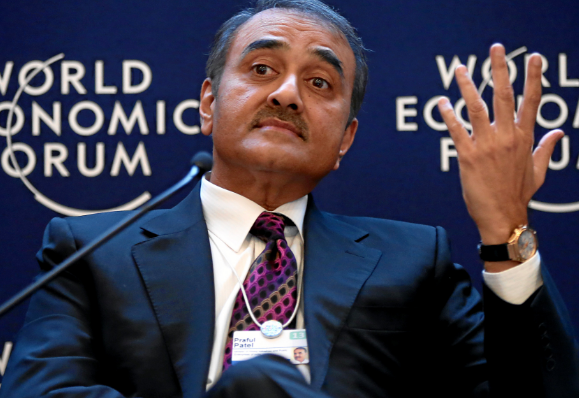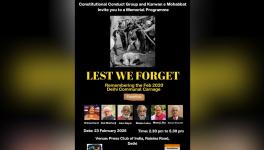Game of Thrones in Lockdown: Impossible to Quarantine Politics in Indian Football

In October 2017, the Delhi High Court set aside the election of Praful Patel saying the AIFF did not adhere to the National Sports Code, an order that was stayed by the Supreme Court barely two weeks later.
RK Gupta was a popular figure in the capital city’s football circles in the 1980s and 90s. A senior official of the now-defunct DCM football tournament, RK was known for his proximity to players, coaches and officials across the country. Even then, for a diminutive, ever-smiling man so deeply entrenched in Indian football, there was a moment when he wished he had never come in contact with the game.
It was December 1988 and Khalifa Ziauddin, a long-time iron man of Indian football, was stepping down as President of the All India Football Federation (AIFF). It soon emerged that two Central Ministers under Prime Minister Rajiv Gandhi, Priyaranjan Dasmunshi and Santosh Mohan Dev, were looking to grab the post.
The elections were a bitterly fought battle on the last day of the year in Mumbai (then Bombay). State association officials and their votes were in high demand for the elections. They started arriving at the western metropolis nearly a week in advance.
Read More | The Price of Power: Modesty, Decadence And Inevitability
The voters were accommodated at expensive hotels, thrown lavish dinners and allegedly briefcases full of currency notes changed hands.
RK was in Mumbai as the ‘chief election manager’ for one of the candidates. On the night of December 29, as he strode into Bombay Central station to receive a couple of state association officials and escort them to a ‘safe hotel’, he suddenly found himself surrounded by a group of youngsters, who did not look very friendly.
“They had hockey sticks, iron rods and chains in their hands and had come to hijack the state association officials for the other camp,” RK reminisces, now living as a retired man in East Delhi. “I was nearly beaten up. Only I know how narrowly I managed to escape with the voters. It was a close shave.”
Records say that India played five matches in the Asia Cup qualifiers in 1988. They couldn’t win a single one and finished last among six teams. This failed to dampen the spirits of AIFF officials. The federation elections were way more competitive that Syed Nayeemuddin’s Indian team on the pitch that year.
It reached a level where Ram Niwas Mirdha (then one of the country’s senior most Central Ministers) had to dash down to Mumbai to settle the issue in favour of Dasmunshi. His rival, Dev, withdrew from the race at the last moment.
Dasmunshi was a master of managing elections, despite being unable to transfer his ‘winning’ skills to the national team in his 20-year stint as AIFF president. His position was once threatened in 2000 where he once again displayed how adept he was with ‘strategies’ and ‘counter-attacks’.
In December 2000, when Punjab Football Association’s (PFA) President Samir Thapar challenged Dasmunshi for the top post, yet another ‘battle royal’ was witnessed. Those who followed the elections closely will remember how rules were bent, genuine voters sidelined, political power unashamedly used and money thrown around to grab seats.
One voter, then the President of a State Association, returned from the US and demanded the customs duty for golf clubs bought there be reimbursed by one of the candidates. One of them duly obliged. Next day, the man voted for the other candidate. In another instance, the Secretary of a government sports body was replaced by a lowly clerk at the last moment to ensure the vote went to the ‘right’ candidate.
Dasmunshi had the opposition floored. Completely.
Read More | The Lockdown Lives of Football’s Marginalised Essential Service Providers
Have things changed over the years? Certainly not. With a new set of rules, the style of electioneering has changed. It has become more subtle. The lust for power remains intact.
This last month has been terrible for the country. The lockdown has brought everything to a halt, football included. Close to 400 I-League matches (across all age groups) have had to be cancelled. The fate of young, upcoming players is uncertain, foreign recruitments in limbo. No one is sure when football will be restored.
Debate rages in Germany over restarting the Bundesliga next month. Spain is planning to sanitise the pitch and the ball before every match; their federation is discussing measures to minimize injuries once footballers return to action after the long lay-off. Some federations are reportedly contemplating whether to make Covid-19 tests mandatory in the future.
Things are different in India. The talk is different. Here there is chatter about the next AIFF elections, scheduled for sometime between December 2020 and March 2021. There are speculations on how the elections could be postponed; how the same set of officials could continue in their chairs. In the past, Indian football’s priorities have always been praiseworthy! And they have truly lived up to its reputation. Once again!
Read More | Indian Football’s Clarity At the Top Must Not Distract Us From Problems At the Grassroots
In October 2017, the Delhi High Court set aside the election of Praful Patel as the president of AIFF saying the federation did not adhere to the National Sports Code. Less than two weeks later, the Supreme Court stayed the order of the Delhi High Court, allowing all elected members of the federation to function in a normal fashion. The Supreme Court also formed a two-member committee to make necessary changes in the AIFF constitution in line with the Sports Code.
The committee was asked to submit the report in eight weeks. That didn’t happen. Sources say the report has been submitted only recently. It is now up to the apex court to take a decision.
This is not an attempt to establish where and how the Sports Code was violated to help certain individuals. It isn’t making a case on whether some people could use this as a shield to extend their stronghold. It is better not to get into this debate when the matter is subjudice. But one must question the timing.
This lockdown could have been used to brainstorm on a few other issues. A debate on the timing of the next national camp, a revamp of the halted youth leagues or discussions on the quota of foreigners in domestic football would have lifted the spirit of Indian football fans.
But then, in the democratic set-up of Indian sporting bodies, nothing is more important than keeping seats intact for the next four years. It benefits a chain of people. Lockdown or no lockdown, football can wait. The politics of elections cannot. In fact, this will also start months in advance!
Get the latest reports & analysis with people's perspective on Protests, movements & deep analytical videos, discussions of the current affairs in your Telegram app. Subscribe to NewsClick's Telegram channel & get Real-Time updates on stories, as they get published on our website.
























